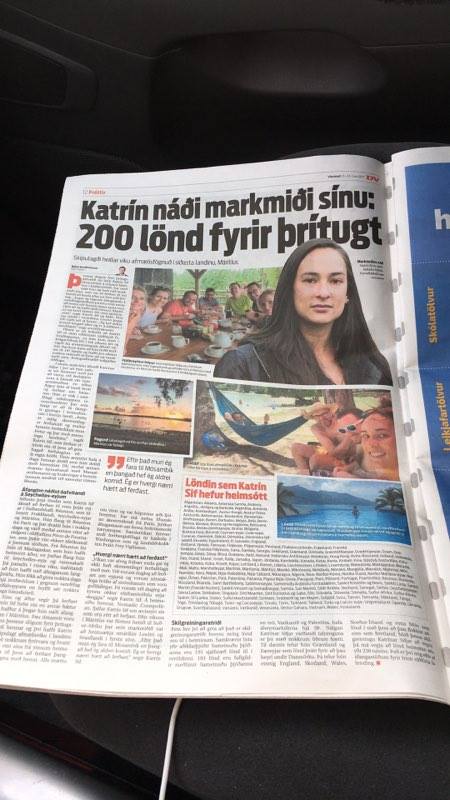Karla, a journalist from the online publication of Pulico, reached out in June to ask a few questions about my blog and experiences with couchsurfing. She wrote this eye-opening article after interviewing myself, Stephen Orth from Germany, and Nenad Stojanovic from Serbia. Below is a rough translation of some of the content:
*for the full article in Portugese and to see accompanying pictures from Orth and I, please click here.
“SOCIAL NETWORKS”
Risks do not stop couchsurfers from escaping the traditional tourist itinerary. Social networks that remain under the eye of the police, trips with smugglers, and photographs with rebels are part of the stories of those who use the couchsurfing website to escape the traditional tourist itinerary. Risks are a conscious choice of those who bet on these types of social network systems for travellers trying to get off the beaten track…
In countries like Iran, where foreigners are viewed with suspicion, it is customary for authorities to try to catch couchsurfers in disguise. Publications on social networks give the alert. “Because of that, we often don’t know who we are talking to until we arrive. Our hosts use fake names and addresses online, ”tells PULICO Katrin Einarsdottir, a 31-year-old Icelander who also travels the world with the mobile application. She started using the system at the age of 21, on the first trip she took alone – to Paris, France -, when a friend told her how she could extend the tour abroad without spending money on hotels…
Couchsurfing, which was born as a website in the early 2000s, is the answer for anyone who wants to experience a country’s culture from a citizen’s perspective or has a tight budget. Since 2007, Katrin Einarsdottir has visited nearly 200 countries via the social network for travelers, including sites difficult to explore through a traditional tourist itinerary such as Afghanistan, Ghana, Saudi Arabia and Sudan. “I admit that the thought of some countries makes me a little insecure, but I feel more grateful for the effort that people in these countries make to accommodate us, ”says Einarsdottir.
The PULICO tried to contact those responsible for couchsurfing to better understand the phenomenon, but received no answer. In the forum of the site, users share several reasons for their interest in these countries: curiosity to discover very different cultures, willingness to visit world heritage sites without tourists around (the ruins of Herat, Afghanistan, are the most popular places) and willingness to go to places little recommended by travel agencies and the governments of the countries of origin. In Portugal, for example, the Ministry of Foreign Affairs “discourages all travel to Afghanistan” and recalls that, “if a national is detained in Iranian territory, the scope for intervention by the Portuguese embassy may be limited…
For Einarsdottir, tolerance is the key for this type of travel to work. “We have to be able to give up some opinions and ideas for a while to respect others.” In poorer areas, she warns, it is normal for hosts to ask for money. “Some see websites for talking to foreigners as a way out. Whether to find potential marriage partners, move out of the country, or ask for financial support. ” It has already happened to you? “It is difficult to escape. People wait until there is a relationship of trust and friendship, and only then they ask. I always offer to pay pay for dinners or drinks. To some extent, I think it’s fair because they are hosting me and teaching the culture, but I never give money directly.
On her blog, Einarsdottir describes herself as a cosmopolitan nomad and shares some of the most peculiar customs she encounters on her travels. Iran, where there is a big difference between public and private space, was one of the trips that surprised her the most. “There, they have a legal form of prostitution, supported by the Government. Men pay to marry a woman, for an hour, a week or even a year. During that time, they can have sex without the woman being considered a prostitute,” explains Katrin Einarsdottir. In a paradox, “men and women who are not married or are not family cannot walk on the road together”. However, when traveling by train at night, the Icelandic came to share cabins with both. “This is not seen in hotels or in movies”, concludes the Icelandic…
Both Stephan Orth and Katrin Einarsdottir say that the popularization of smartphones has greatly facilitated the process of meeting real people anywhere in the world. Although access to the Internet and mobile phones is far from universal, both say it is easy to find people connected to the Internet and with a curiosity to learn about other parts of the world in couchsurfing. To avoid problems, German Stephan Orth recommends to always buy a SIM card from the country when you land, avoid hosts without photos on the Internet and, above all, have flexibility.
“Always have a plan B,” says Orth. “Using couchsurfing allows for incredible experiences, but it’s not like going to a longtime friend. Sometimes people are late for hours. Other times, they disappear without a trace. To do this, you need to know how to deal with the unexpected. ”





